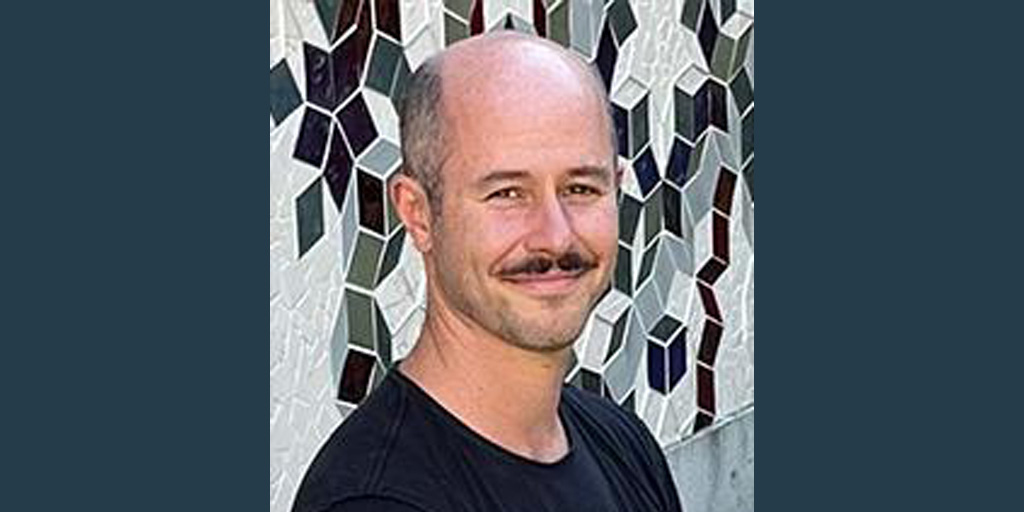Joshua Greene ’02 to Receive 2023 Levi L. Conant Prize
November 7, 2022
The 2023 Levi L. Conant Prize is awarded to Joshua Evan Greene ’02 of Boston College for his article “Heegaard Floer homology,” published in the Notices of the American Mathematical Society (68 [2021], No. 1, pp. 19-33). The award recognizes the best expository paper published in either the Notices of the AMS or the Bulletin of the AMS in the preceding five years.
In 2002, Greene was the first student from an undergraduate-only institution to receive the Frank and Brennie Morgan Prize for Outstanding Research in Mathematics by an Undergraduate Student. That prize was based on his paper “A new short proof of Kneser’s conjecture” which appeared in the Monthly and his senior thesis with Francis on Kneser’s conjecture and its generalizations.
An AMS news release details the Conant Prize honor:
“This article is beautifully written, detailing a modern perspective on the history of low-dimensional topology, from Poincaré to today,” the citation noted. “This work is en route to become a canonical reference for experts and non-experts alike, and is particularly valuable for early career researchers.”
From the Citation
Greene’s article is a survey of the emerging field of Heegaard Floer homology, starting from its historical antecedents and going on to describe a wide variety of results and applications of this theory. This is a substantial undertaking, and the paper is a serious read which requires a dedicated effort to understand. However, for any student or researcher with some knowledge of the underlying mathematical ingredients, this paper provides a compelling account of how the field evolved. It describes key issues and questions motivating this development, and presents some of the beautiful results and applications it has made possible. This area is challenging to enter inasmuch as it requires facility with several different parts of mathematics, including combinatorial methods in low dimensional topology, symplectic techniques, and an appreciation for the analytic subtleties of gauge theory. Greene’s paper provides an excellent road map for any serious study of this field by illuminating a path through this long chain of ideas and results. It motivates the logical progression that has led to the current state of knowledge, and suggests some promising directions for future investigation.
Response of Greene
I am very proud to win the 2023 Levi L. Conant Prize.
I have greatly enjoyed reading the Notices and the Bulletin from the time I entered graduate school. I am grateful to the AMS for publishing and promoting high-quality exposition through these journals, as well as to the countless contributors to these journals whose articles I have read and who have set such a high bar for quality. Thanks especially to Erica Flapan from the AMS for soliciting me to write this article, and to her, Dorothy Buck, and Eli Grigsby for encouraging me at a time when I thought I would give up on it.
Heegaard Floer homology is a vibrant area whose emergence was personally very well-timed with my entering graduate school. It draws together many different strands of mathematics, so has been able to pull in scores of mathematicians of different talents and persuasions. I am grateful to my many mentors, peers, and students, whose work and writing have educated me and helped me compose this survey. Among them, let me single out the field’s creators, Peter Ozsváth and Zoltán Szabó, under whom I was fortunate to study as a graduate student and postdoc. Thanks in large part to their influence, the area has been a reliably positive and supportive environment.
Thanks to the many mathematicians whose writing style has left an imprint on me. To name a handful: Noga Alon, for his elegance and clarity; Cameron Gordon, for his concision; Larry Guth, for supplying context and revealing thought processes; David C. Kelly, for his wit and whimsy; and Paul Seymour, for his energy and enthusiasm.
Finally, thanks to my English teachers from Oakland Mills High School: Ms. Curtis, Mr. Wright, and Mrs. Hermann. They gave me a rigorous training in composition which has been vital to my life and career, even though I certainly did not appreciate it at the time. They would be astonished to learn that I have won an award for my writing.
Biographical Sketch of Greene
Josh Greene grew up in Columbia, Maryland. He got a B.S. in mathematics (with distinction and departmental honors) from Harvey Mudd College in 2002, was an AmeriCorps volunteer with Habitat for Humanity in Kentucky, got an MSc from the University of Chicago (2004), received a PhD from Princeton University (2009), and did a postdoc at Columbia University. Since then, Greene has been on the faculty at Boston College. His research is in low-dimensional topology, drawing influence from combinatorics, symplectic geometry, and (Heegaard) Floer homology. Greene has maintained a close involvement with the Hampshire College Summer Studies in Mathematics since he was a student there at age 17, and more recently with the programs of Mathematical Staircase, Inc., where he sits on the board of directors; mathematics is never more fun for him than it is in those environments. He plays hockey on Tuesday nights with Team Black in Somerville, although he is on loan this season to The Hansons (A) in Oakland, California. He notched a garbage goal on the power play in a 4-2 loss to the Grey Bears about an hour before writing this sketch.
About the Prize
The Levi L. Conant Prize recognizes the best expository paper published in either the Notices of the AMS or the Bulletin of the AMS in the preceding five years. Prize winners are invited to present a public lecture at Worcester Polytechnic Institute—where Conant spent most of his career—as part of the institute’s Levi L. Conant Lecture Series, established in 2006.
The 2023 prize will be presented during the Joint Prize Session at the 2023 Joint Mathematics Meetings in Boston.
